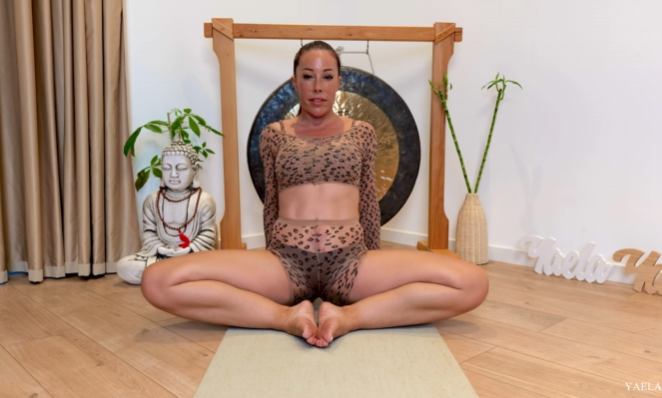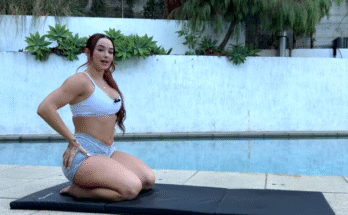
Yoga, an ancient practice that originated in India over 5,000 years ago, has become a global phenomenon embraced by millions. What may surprise many is that yoga is far more than just stretching or physical movement—it’s a complete system that integrates the mind, body, and spirit. Its power lies in its simplicity and its depth. It can help improve flexibility, build strength, relieve stress, promote emotional balance, and even boost brain function. In today’s fast-paced and stressful world, yoga offers a powerful antidote to physical exhaustion and mental burnout.
The Physical Benefits Go Beyond Flexibility
Most people associate yoga with flexibility—and for good reason. Regular yoga practice gradually loosens tight muscles, increases range of motion, and makes the body more limber. But the physical benefits of yoga go much further. Yoga strengthens muscles, especially the core, back, and stabilizer muscles, through holding poses like plank, downward dog, and warrior. Unlike weightlifting, which often isolates one muscle group, yoga builds balanced strength across the entire body.
Additionally, yoga improves posture, which is essential in a world where many spend hours hunched over computers and phones. Better posture leads to less back and neck pain and reduces strain on joints. It also encourages deeper breathing, allowing more oxygen to flow to muscles and the brain.
Yoga also supports better circulation and cardiovascular health. Certain styles, such as Vinyasa or Power Yoga, provide a gentle aerobic workout, increasing heart rate while encouraging calm, steady breathing. Research shows that yoga can help lower blood pressure and reduce inflammation, both of which are key to preventing chronic diseases like heart disease and diabetes.

Mental Clarity and Stress Relief
Perhaps the most surprising aspect of yoga is its power to calm the mind. The controlled breathing, mindful movement, and meditative aspects of yoga work together to activate the parasympathetic nervous system—the body’s rest and digest mode. This helps counteract the stress response, lowering cortisol levels and calming the racing thoughts many people experience daily.
Yoga encourages mindfulness, the practice of staying present and fully engaged in the moment. Through breath awareness and body scanning during poses, practitioners learn to focus their attention inward. Over time, this builds resilience to stress and promotes a sense of inner peace. Yoga doesn’t just mask stress—it teaches people how to manage it more effectively in their daily lives.
Scientific studies back this up. Regular yoga practice has been shown to reduce symptoms of anxiety and depression. It’s often used as a complementary therapy for mental health conditions because of its calming effect on the nervous system. Even just ten minutes of gentle yoga a day can significantly improve mood and emotional stability.
A Natural Energy Boost
It might seem contradictory that something so calming can also be energizing, but yoga works in mysterious ways. Instead of leaving you drained, as some workouts do, yoga often leaves people feeling refreshed and alert. Certain breathing techniques, like Kapalabhati (skull-shining breath) or Bhastrika (bellows breath), are especially invigorating and are used to awaken the body and mind.
Yoga helps clear mental fog and improve concentration. It teaches practitioners to slow down and focus, which has powerful effects on cognitive function. Many find that they can think more clearly, make better decisions, and maintain focus longer after just a short session.

Emotional Healing and Self-Awareness
One of yoga’s most transformative powers is emotional healing. Through the quiet introspection that yoga encourages, many people begin to understand themselves better. The practice can bring old emotions to the surface—sometimes uncomfortable ones—but in doing so, it provides an opportunity to process and release emotional baggage.
Yoga teaches acceptance and self-compassion. There is no competition in yoga—no winning or losing, just you and your mat. This creates a safe space for personal growth. Over time, yoga practitioners often develop a kinder relationship with themselves. They learn to listen to their bodies, respect their limits, and celebrate progress rather than perfection.
For many, this emotional growth spills into other areas of life. They find themselves more patient with others, more open to change, and better able to handle life’s ups and downs. Yoga becomes more than a practice—it becomes a way of life.

Yoga for All Ages and Abilities
Another surprising power of yoga is its adaptability. Yoga isn’t only for the young or the super fit—it’s for everyone. There are gentle forms like Chair Yoga or Restorative Yoga for seniors or people with limited mobility. Kids can benefit from yoga too, learning focus, balance, and body awareness early on.
Pregnant women turn to prenatal yoga to relieve common pregnancy discomforts and prepare their bodies for childbirth. Athletes use yoga to improve flexibility, prevent injuries, and support recovery. Office workers use yoga breaks to relieve tension and reset their minds during a long workday.
No matter your age or fitness level, there is a style of yoga that can meet your needs and support your health goals.

A Spiritual Connection (Even for the Non-Religious)
Though yoga originated as a spiritual discipline, it is not tied to any religion. Yet, its spiritual benefits can be profound. The practice helps people feel connected—not only to themselves but to something greater. For some, this may be God, nature, or simply a deeper sense of purpose.
The quiet space created by yoga invites reflection, gratitude, and stillness. Many people say they feel more grounded and centered after practicing, with a stronger sense of who they are. This connection brings meaning and fulfillment that’s often missing in modern life.

Conclusion: A Powerful Tool for Modern Life
The surprising power of yoga lies in its ability to touch every part of our being. It’s not just exercise—it’s a holistic practice that heals, energizes, and transforms. From stronger bodies to calmer minds, from emotional healing to spiritual connection, yoga has something to offer everyone.
In a world that demands constant motion and productivity, yoga reminds us to slow down, breathe, and simply be. It teaches us that true strength lies not just in muscles but in self-awareness, compassion, and balance. Whether you’re rolling out your mat for the first time or the thousandth, you’re stepping into a practice that can change your life—one breath at a time.


